April 12, 2023
Remaking a Yard into Flowers, Food, Joy: Kristin & Ryan Harvey
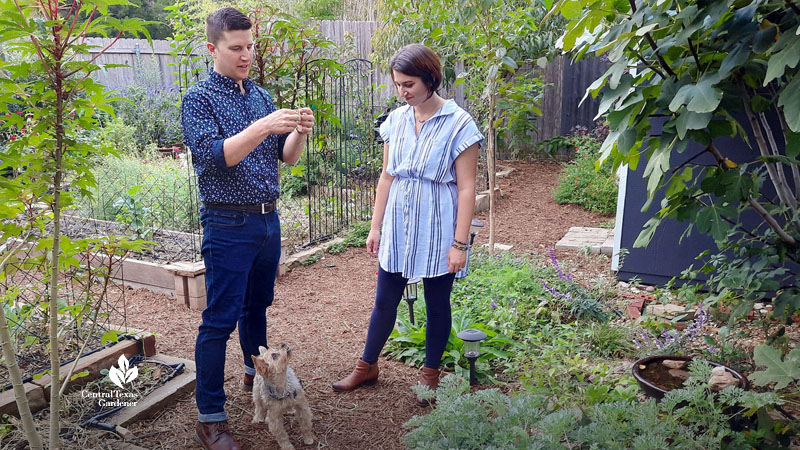
“What do we want in our dream garden?” That’s what Kristin and Ryan Harvey asked in 2014 when they bought their house. Through permaculture and lots of after-work hours, they turned a rampaging bamboo forest into flowers, fragrance, food, and teas from fruit and leaves.
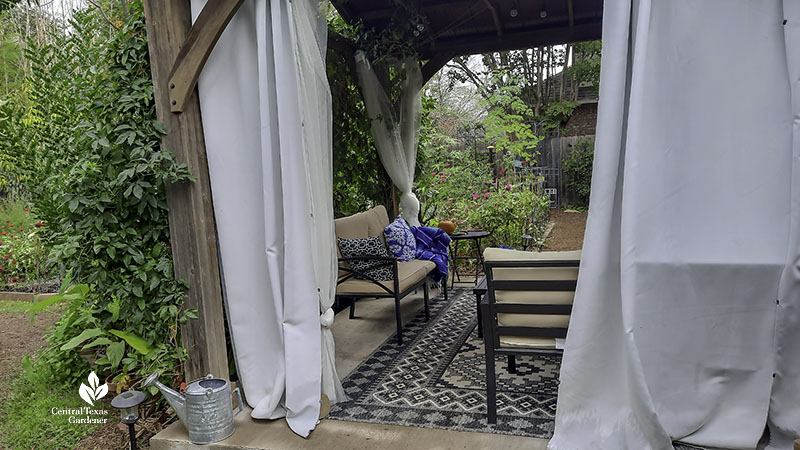
They’ve restored the bond between soil, plants, and wildlife where every day starts and ends with discoveries and solace.
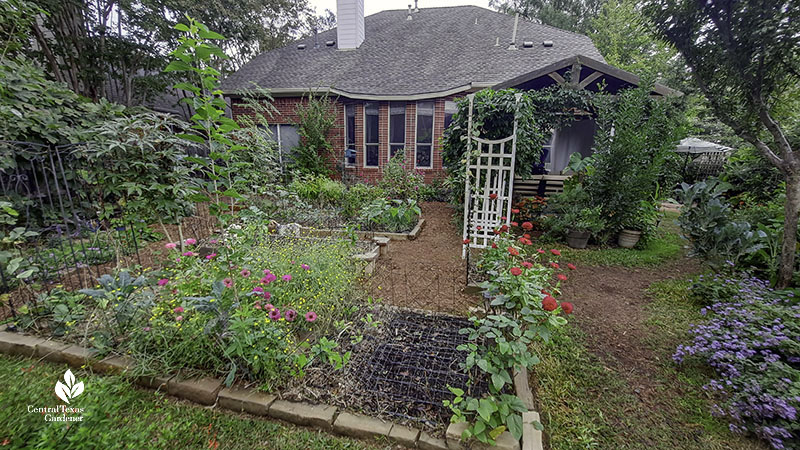
The CTG crew headed over on a cloudy, sometimes drizzly November morning. Despite earlier nips, summer’s zinnias and edible hibiscus still frolicked alongside various stages of winter crops. Wild rocket arugula had bolted in October’s heat—its yellow flowers waving above tasty leaves before seeding the next generation. Bees fervently honed in on flowering native perennials to meet their frost-assigned deadline mission.
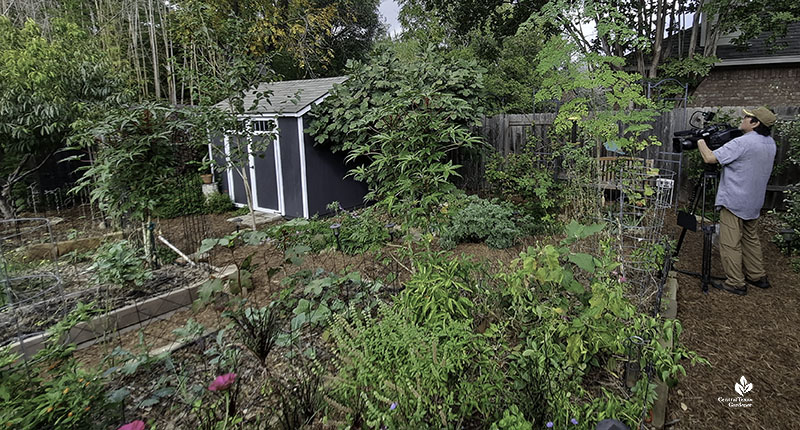
When Kristin and Ryan started out, they worked with landscape designer and permaculture consultant Patricia Michael to organize and prioritize their blurry goals.
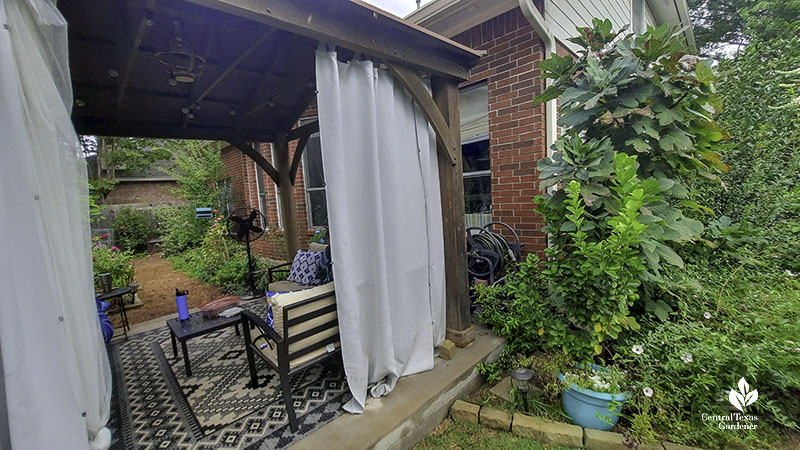
“We just hadn’t really thought about all of our needs,” Ryan said. “Things like screening from the road, a place to cook and eat; shade, edibles, a lot of plants in one space; all these sorts of things.”
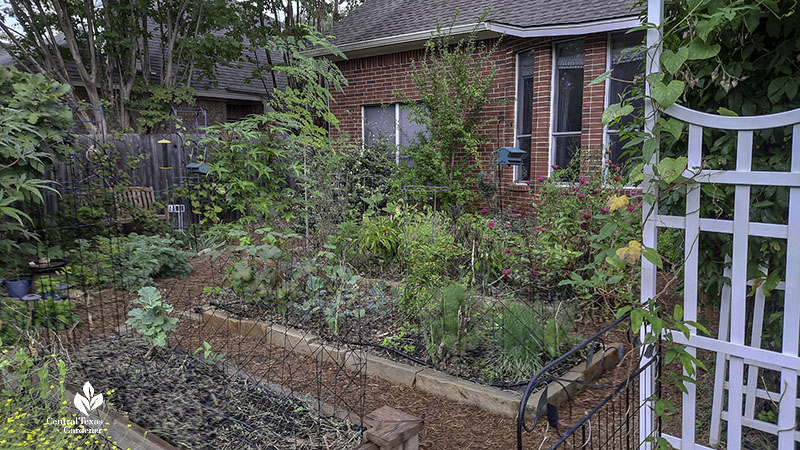
Then they chunked out the work, where family and friends gladly jumped in. Ryan’s brother really went to town digging out invasive bamboo. (In the end, they hired a professional to install a secure barrier.)
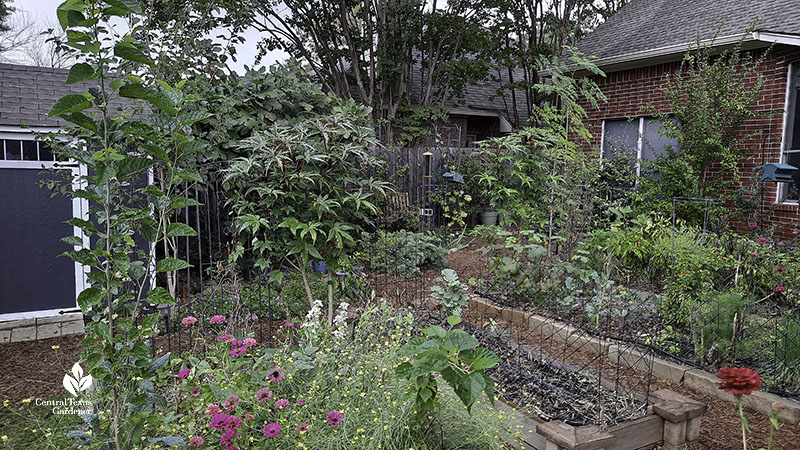
By now, they have over 100 trees in the ground or in pots and 70 of those are edible. Budget-savvy, they relied on seeds, 4-inch pots, and cuttings and divisions from friends. In fact, one fig tree started as a cutting they took from a fig tree they gave Kristin’s dad. Plants that seed out build the harvest wealth in a few seasons.
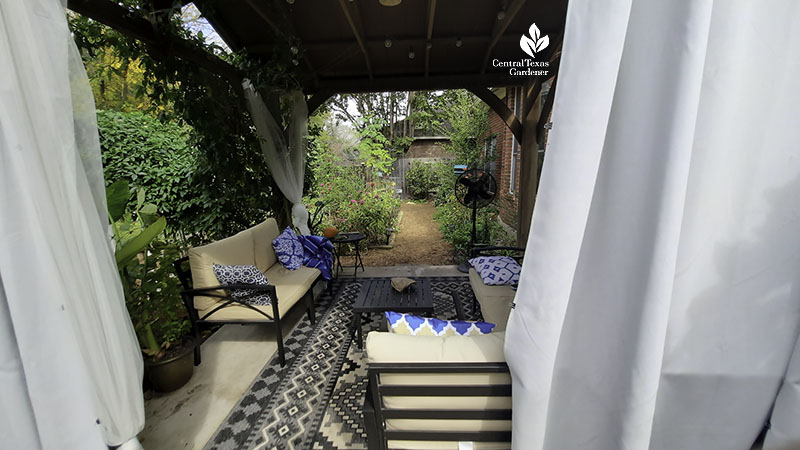
Then they realized they needed a spot to simply enjoy it all. Again, with friends and family, they installed a cabana kit to create a cozy, shady nook outside the kitchen door.
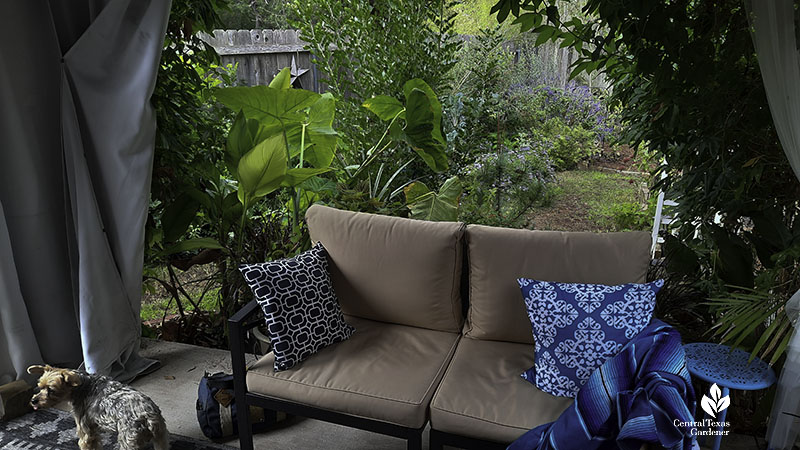
A passion vine cutting shared by Kristin’s mom traveled 30 feet from its original spot to drape the cabana until hard freezes. Don’t worry: it makes it back in spring! In fact, it’s emerging right now. If new ones pop up where we don’t want them, it’s easy at this early stage to pull them out by the roots.
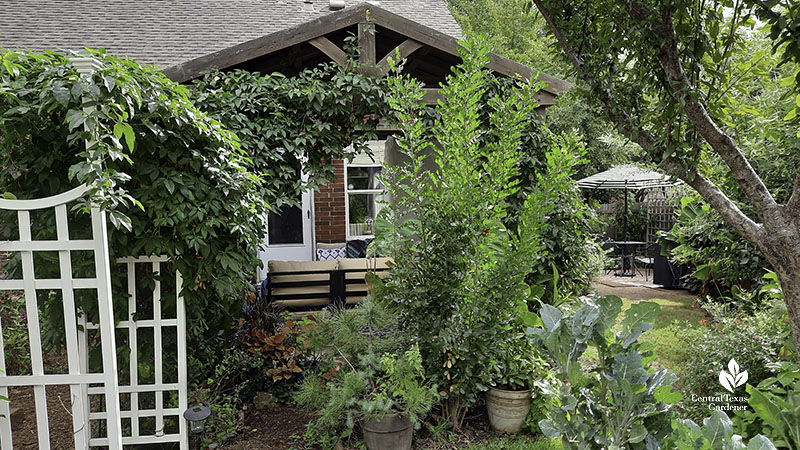
At one corner, they planted Texas mountain laurel to perfume the nook with spring flowers. ‘Incense’ passion vine takes over aromatherapy in late spring through fall. They harvest some flowers for soothing tea.
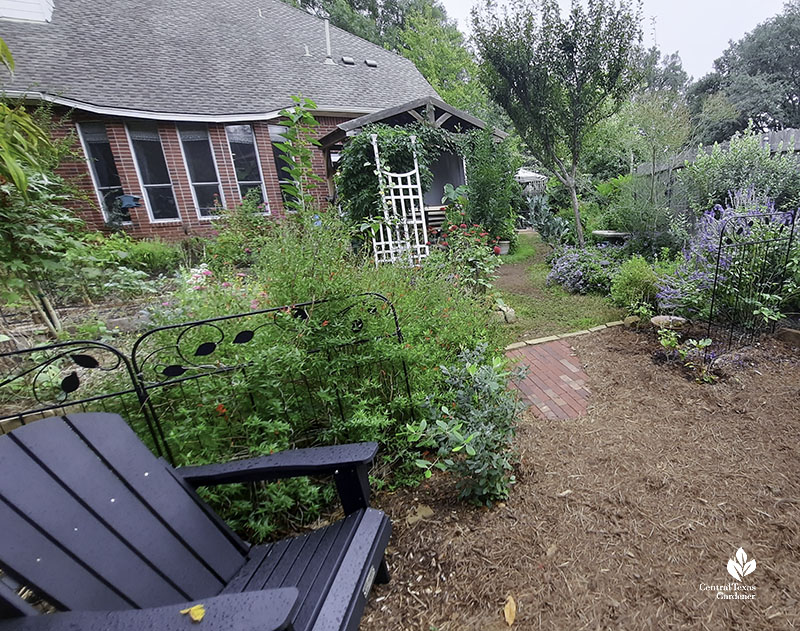
They screened the fence with various small trees and shrubs, including arbequina olive, Barbados cherry, and fragrant almond verbena. Seasonally-blooming perennials keep butterflies, bees, and hummingbirds around. In November, orange-flowered flame acanthus joined Salvia ‘Mystic Spires’ and blue mistflower (Conoclinium coelestinum).
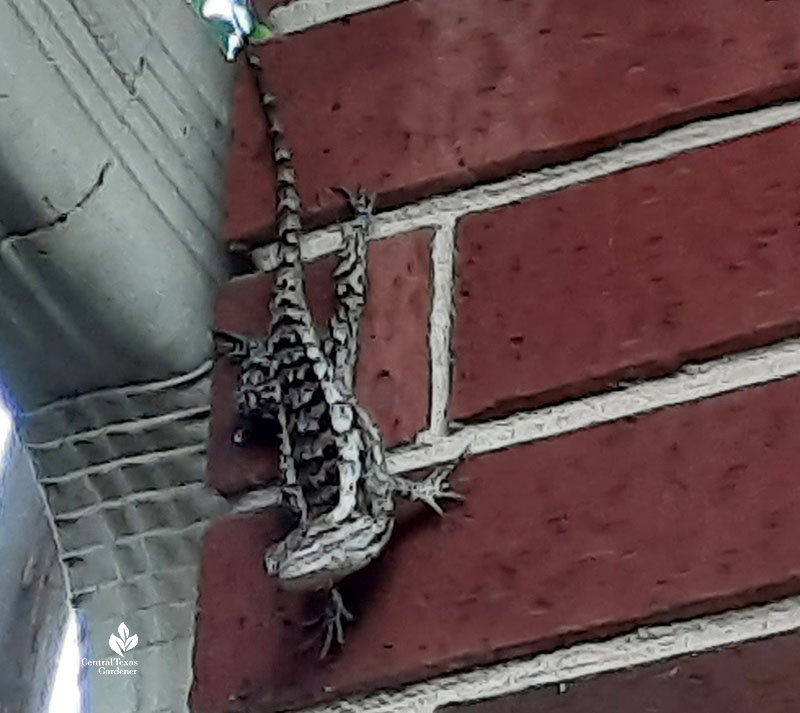
An important permaculture technique is “chop and drop,” where we leave garden prunings (and leaves) on the ground to nourish the soil and protect small critters over winter. Thanks to the habitat they’ve created, the garden’s wildlife maintains a natural predator/pest balance. A Texas spiny lizard kept an eye on us.
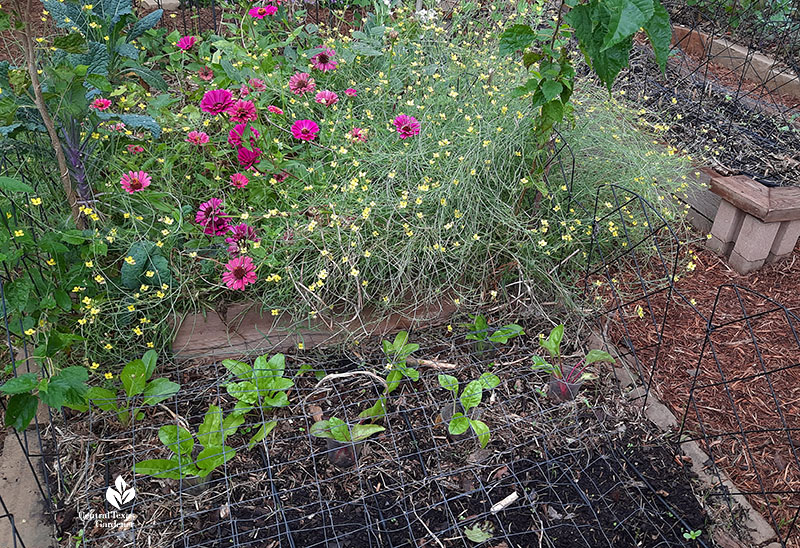
They protect seedlings from digging critters with rolled wire across the beds. (Note to squirrels and raccoons: sorry, not sorry!) To fend off snails and slugs—or caterpillars with some crops—they cut the bottoms out of wide-mouthed cups and slide them over to act as collars until the plants can stand on their own.
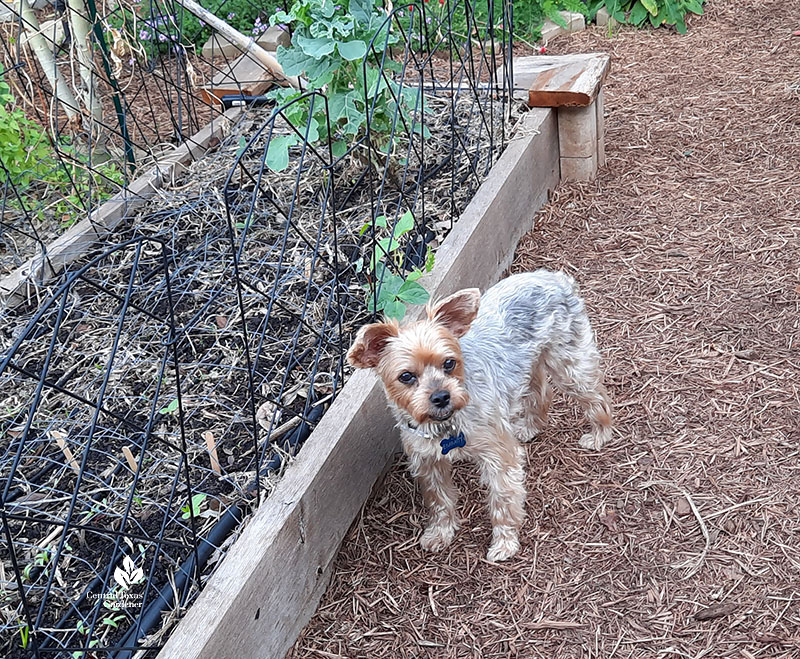
And then there’s their elderly pup, sweet Emmitt Smith, who LOVES fresh veggies! Most of the time, he gets to harvest whatever he wants, but Kristin and Ryan installed low barricades for crops they want to preserve.
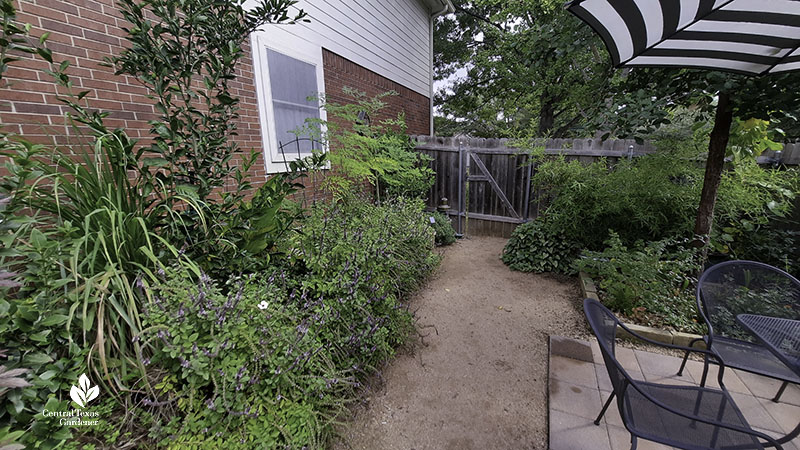
In the side garden between house and fence, they planted an array of edible, health-beneficial plants, including bay laurel, pomegranate, lemongrass, African blue basil, and many moringa trees they grow from seed.
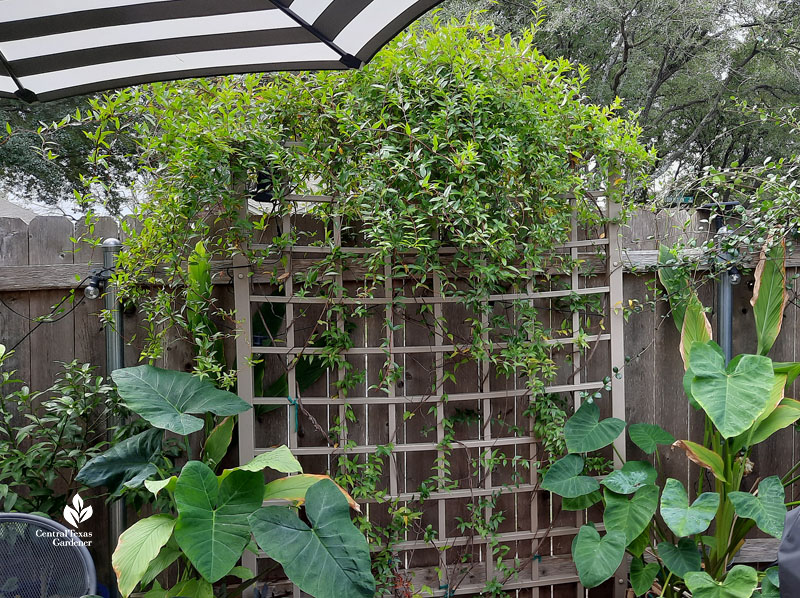
At fence side, a native, fragrant spring-blooming Carolina jessamine winds up a screening trellis near a dining table. In pots, they’re growing edible malanga lila and turmeric.
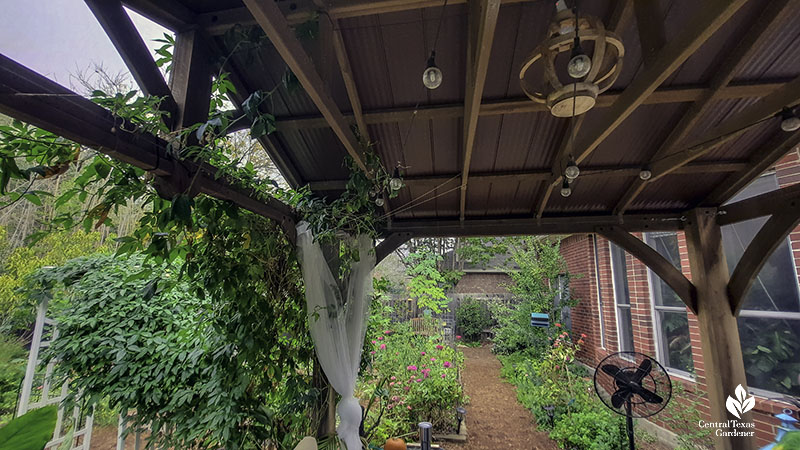
There’s such an abundance of beneficial plants, including cover crops like wheat, that it’s impossible to list them all! In essence, the garden’s become their harbor to put life and weather challenges into perspective. For Kristin: “Not only it connects you to this place, but it also kind of connects us to our family histories as well.” Ryan added: “It always draws us back to the earth—just those patterns every day.”
There’s so much more, including director Ed Fuentes’s beautiful videography.
Thanks for stopping by! Linda
tags:

